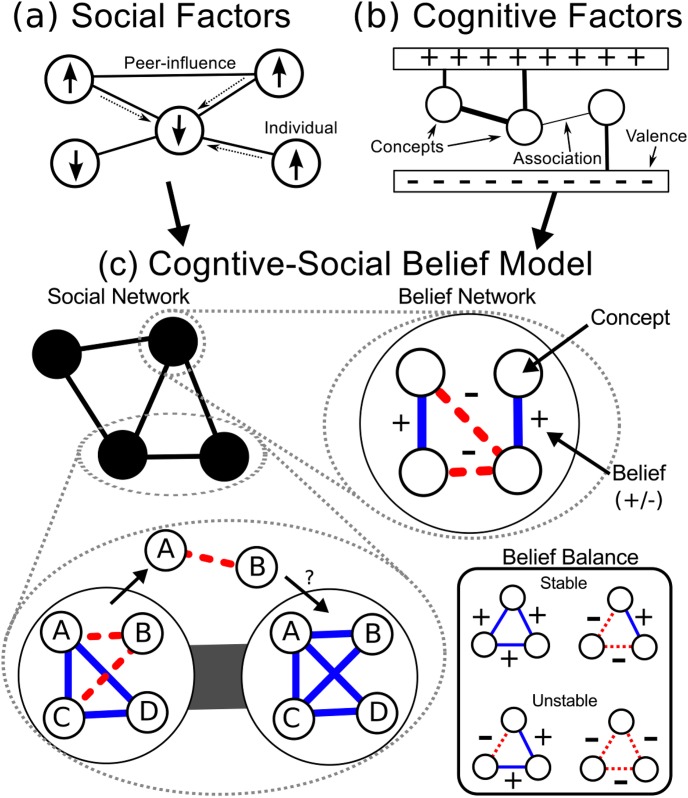Fig 1. Cognitive-Social Belief Model.
(a) Social models, such as the voter or Sznajd models, focus on the assimilation process through social pressure. Beliefs are usually simplified as independent states. (b) Cognitive models, such as the SKS model, focus on the interaction and coherence of beliefs of a single individual and how individuals make decisions and change their minds. The effect of social networks is often unaddressed. (c) Our model incorporates both forces, recognizing not only social pressures but also the connected nature of human beliefs. The social network acts as a conduit for belief transmission between individuals. We model a belief as a signed relationship between two concepts. We express the internal coherence of a network of such beliefs in terms of social balance theory where relationship triads can be either stable or unstable. The belief networks evolve over time as individuals decide whether to accept new beliefs transmitted by their peers.

